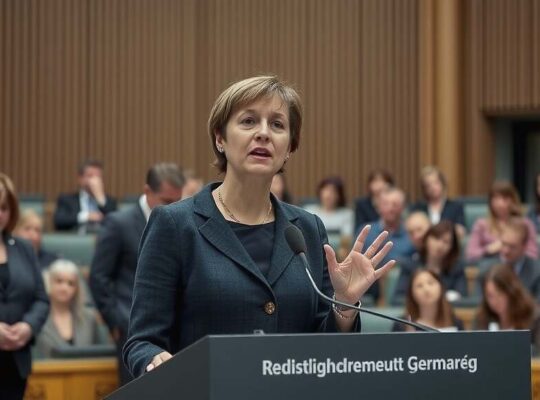The growing prevalence of extremist incidents within German schools is prompting urgent calls for increased support for educators facing a surge in racially and religiously motivated aggression amongst students. Federal President Frank-Walter Steinmeier has emphasized the necessity of bolstering teachers’ resources, highlighting the untenable position they find themselves in when confronted with such expressions of prejudice. While acknowledging teachers, like himself, must maintain political neutrality, Steinmeier stressed that neutrality cannot equate to inaction when students exhibit racist or antisemitic behavior.
The Gewerkschaft Erziehung und Wissenschaft (GEW), a major teachers’ union, reports significant distress amongst its members, many of whom are unsure how to respond to extremist incidents within the framework of their roles as civil servants. They grapple with navigating appropriate action and permissible boundaries.
Steinmeier’s intervention comes amidst a wider acknowledgment of the societal and political challenges stemming from recent global crises. He warned of a growing tendency towards societal withdrawal and a reluctance to publicly defend democratic values, underscoring the critical need to prepare students for a changing landscape and the importance of advocating for democratic principles.
However, a concerning element of this situation is the perceived strategic exploitation of the debate surrounding teachers’ neutrality by the Alternative für Deutschland (AfD). GEW Chairwoman Maike Finnern warned of the party’s deliberate intensification of its focus on schools in recent years, manifested through an increased number of parliamentary inquiries and controversial “reporting portals” designed to denounce teachers for perceived political transgressions. Finnern argues that the AfD’s actions are actively creating an atmosphere of apprehension and self-censorship amongst educators, forcing them to constantly question the boundaries of acceptable discourse.
Federal Education Minister Karin Prien (CDU) has echoed the urgency of the situation, expressing regret over the lack of a national, unified system for documenting extremist incidents within schools. The current patchwork approach, where some states meticulously record such incidents while others do not, hinders a comprehensive understanding of the problem’s scale. Prien also voiced concerns about the increasing normalization of right-wing extremism, populism, authoritarian tendencies and antisemitism – originating from various social groups, including those of migrant backgrounds – and the rising tide of reported extremist occurrences within schools. The call for standardized data collection represents a critical step toward addressing this complex and increasingly prevalent challenge to the foundations of the German education system.












